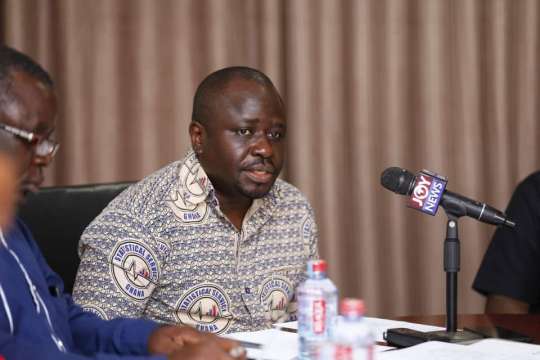The Ghana Statistical Service (GSS) has revealed that it spent ¢6 million in conducting its corruption perception report recently released.
According to the GSS, a component of the expenditure was from United Nations Office on Drugs and Crime (UNODC).
This was revealed by the Government Statistician, Prof Samuel Kobina Annim.
Speaking on the JoyNews’ AM Show on Friday, July 29, they can do the research with ¢5 million on their own.
“In total, we spent about ¢6 million on this survey but obviously this had a component of the expenditure from UNODC side because of the technical support they provided but once we are doing this by ourselves, we think something around ¢5 million will suffice,” he said.
Prof. Annim also said they will engage with the Finance Minister to see how often this research can be done.
“We have already started conversations on that unfortunately the conversations are from our development partners but what are going to do together with CHRAJ is to approach the Minister for Finance to see what government can do in terms of whether every year or every two years.”
The said report by the GSS together with CHRAJ and UNODC ranked the Ghana Police Service as the most corrupt institution in the country.
According to the survey, more than 17.4 million bribes were paid in 2021 with Police officers topping the list of officials who take bribes with 53.2%.
Meanwhile, the Inspector General of the Ghana Police Service, Dr. George Akuffo Dampare in a five-page letter to GSS and CHRAJ on Wednesday, July 27, questioned the methodology used to conduct the survey.
“Our discomfort, therefore, is the use of selective ranking methodology to project the outcomes in a manner that puts an unfair focus on the Police Service with all the others in your corruption index escaping public scrutiny,” the IGP said.
Dr. Akuffo Dampare explained that per the Police’s analysis of the report, the research could have been influenced by “a historically pervasive stereotyping of the Police Service.”
“The Service has almost now become the default institution of choice for such research and has therefore encouraged a deep-seated public stereotype over the years.”
Latest Stories
-
Next NDC government will pay special attention to women – Naana Opoku-Agyemang
6 mins -
Amerado is singing and it’s good he’s doing that – Lyrical Joe
15 mins -
NDC government will establish a Women’s Development Bank – Prof Opoku-Agyemang
22 mins -
My selection is an affirmation of your belief in women – Naana Opoku tells Mahama
29 mins -
Our ticket will be a pair of experienced individuals – Mahama assures
38 mins -
NDC officially outdoors Prof Naana Opoku-Agyemang as running mate
52 mins -
+233 hosts Int. Jazz Day concert on April 30
57 mins -
Farmer arraigned over threat of death
1 hour -
Education Minister unveils new uniforms for basic schools
1 hour -
8th Ghana CEO Summit scheduled for May 27
1 hour -
Leaked intimate video has severely embarrassed me; I’m sorry – Serwaa Amihere
2 hours -
Poll results alone don’t constitute victory for any political party- Asiedu Nketia cautions NDC
4 hours -
Gyakie spills truth on her journey to fame
4 hours -
Energy sector CSOs challenge Akufo-Addo to transparent value for money audit of SML contract
4 hours -
Plunderers of the State will face the music – Prof Jane Opoku-Agyemang promises
4 hours

